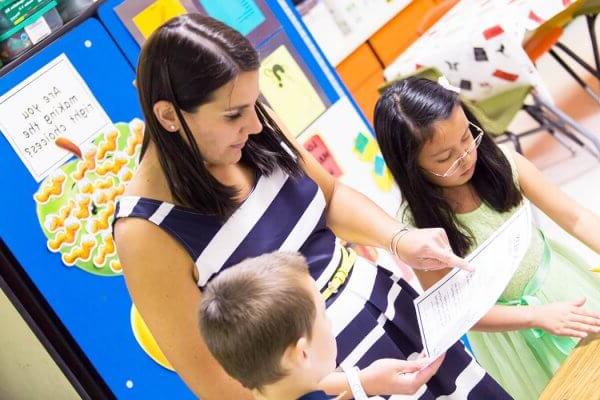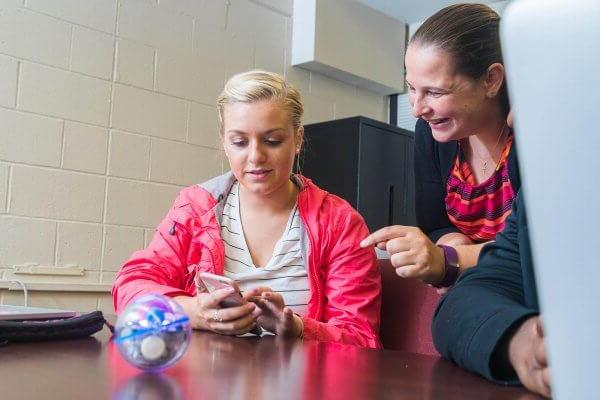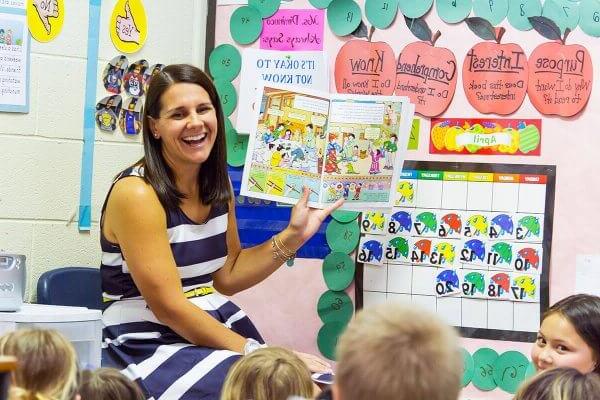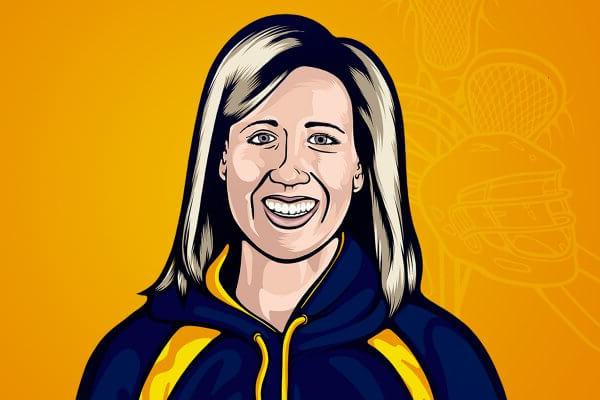Combine your passion for helping children with your interest in education — discover a career in special education.
Special education teachers are in demand, with teacher shortages reported nationwide. A special education teacher is part of a team that plans, delivers and evaluates specifically designed individual plans of instruction (IEPs) to meet the unique needs of children with disabilities. Beyond learning academics, you will learn the socio-emotional and functional skills to help students with disabilities in their daily living, employment and social relationships.
The Professional Studies Certificate program for Special Education Teacher Education serves students who desire Virginia Special Education Teacher Licensure. All courses are offered online in the evenings to meet the needs of working professionals.
This includes the use of the newest instructional techniques, experiential learning and exposure to information related to classroom management, and instructional strategies for delivery to a K-12 school population.
Students completing this program will meet the Virginia Department of Education (VDOE) requirements for licensure and be eligible for endorsement in special education – general curriculum instruction. To complete the PSC, candidates must earn between 30-39 credits, depending upon prior completion of initial education foundational courses.
Learn More About This Program
Shenandoah University’s Division of Education & Leadership prepares practitioner-leaders by offering programs of study that conform to the following principles:
- practicing in a spirit of collaboration, thoughtful examination of the foundations, current contexts and future possibilities of the fields of study
- encouraging proactive, problem-centered philosophies of educational and professional practice
- producing graduates who will be knowledge-driven, competent decision-makers whose thinking is informed by reflective practice
- preparing caring, capable and reflective teachers, administrators, human services and public sectors practitioners
Internship Possibilities
The program works in partnership with local public and private schools that offer special education programs so you complete real-world field experience practicums and student teaching internships within accredited schools. We give individualized attention to provisionally licensed special education teachers who are admitted to the MSE program so they can complete their coursework within the timeframe of their licensure requirements.
You’ll have opportunities to participate in numerous conferences and professional organizations, including the Fairfax County Public Schools RATE (Real Assistive Technology for Everyone) and SUCCESS conferences each year. Shenandoah also has its own student chapter of the Council for Exceptional Children (CEC Chapter 1216), where members participate in CEC state and national conferences, as well as service learning activities with various organizations such as the Cystic Fibrosis Association and the ARC of Northern Shenandoah Valley.
Career Possibilities
Special education teachers are in demand, with teacher shortages reported nationwide. Our program leads to licensure in Special Education-General Curriculum, K-12 endorsement in Virginia. Most states will honor a Virginia teaching certificate so you can apply for a teaching license out-of-state by reciprocal agreement.
In particular, a special education teacher is part of a team that plans, delivers and evaluates specifically designed individual plans of instruction (IEPs) to meet the unique needs of children with disabilities. Beyond learning academics, the focus on socio-emotional and functional skills helps students with disabilities in their daily living, employment and social relationships. In addition, working in the field of special education offers you opportunities to specialize in a variety of K-12 academic settings as well as transitional services that prepare special needs students for post-high school endeavors.
Classes
The program incorporates newest instructional technologies, experiential learning and exposure to information related to classroom management, individual education planning and instructional delivery for students with disabilities in K-12 school population.
Learn through hours of special education and university supervised teaching coursework. Students will create a project that develops better home-school connections.
Classes are one day per week for 2.5 hours each and offered as online synchronous sessions with the possibility of some asynchronous weeks. Synchronous classes are interactive and engaging and include group and individual work. The formats include lectures, interactive discussions, videos, and problem-solving activities. Some classes include practicum hours that students may apply in their current teaching positions. Students not currently teaching will work with their faculty advisor to be placed for practicum hours.
Course Requirements
The certificate requirement is 39 semester hours with a grade point average of 3.0 or better.
Foundation Courses*
- PSYP 510 Human Growth and Learning
- EDU 510 The Teaching Profession
- RDG 523 Foundations of Literacy
*If candidates have already completed the initial education foundation courses (or their equivalent), they only need to take the 24 credits of SED coursework and 6 credits of supervised teaching experiences
Method Courses
- SED 537 Instructional Strategies in Mathematics for Students with Disabilities
- SED 565 Foundations/Legal/Medical Aspects of Special Education
- SED 571 Characteristics of Students with Disabilities
- SED 533 Language Acquisition & Reading Methods
- SED 569 Collaborative and Consultative Strategies
- SED 575 Transitions for Students with Disabilities
- SED 567 Special Education Instruction, Behavior Management, and Assessment
- SED 573 Curriculum, Instruction, & Service Delivery
Passing scores on Praxis II, VCLA and Praxis® Teaching Reading: Elementary (5205)
Supervised Teaching Experience
- EDU 661 Internship in Elementary/Middle/Secondary Education in Endorsement Field
- OR if provisionally licensed in special education, complete:
- EDU 613 Management and Mentorship I
- and
- EDU 614 Management and Mentorship II
Passing score on VCLA and VRA or RVE
Total 39
Faculty
Our accomplished and caring faculty serve as mentors beyond the classroom. As a team, they prepare you to serve as a compassionate educator, critical thinker and ethical leader. You’ll benefit from small class sizes that enable faculty members to provide individualized attention and nurture your academic and professional development.
Application Information
Shenandoah University’s DivisionOf Education & Leadership provides inquiry-driven, problem-oriented examinations of public education and organizations.
View application deadlines and submit your Shenandoah Application.
Education Application Information
Program entry requires that the applicant possess an undergraduate degree from an accredited college. Completion of the program and teacher licensure requires successful completion of the Virginia Communication & Literacy Assessment (VCLA), and Reading for Virginia Educators (RVE); passing VCLA and PRAXIS I-MATH, or all of PRAXIS I, SAT or ACT scores are required for admission into the program. As part of the individual course work, field experiences are embedded and required in each of the courses.
State Reciprocity – SARA
Shenandoah University is a member of NC-SARA, the National Council for State Authorization Reciprocity Agreements. View the licensure requirements for out-of-state students enrolling in Shenandoah programs leading to licensure. Click on the tab at the bottom of the screen to locate your program. Note that these requirements are subject to change. Please contact your program with questions.
State Requirements For Teacher Licensure
Students preparing to be teachers are expected to meet the requirements for teacher licensure currently in effect in the Commonwealth of Virginia. Most states grant teaching licensure on a reciprocal basis when the educating institution is approved by its own state department of education or when graduates of an institution are eligible for teaching licensure in the state in which they were educated. Teacher education programs at Shenandoah University are approved programs of the Virginia State Board of Education, and nationally accredited by the Council for the Accreditation of Educator Preparation (CAEP); thus, graduates will have met all educational requirements for Virginia licensure.
State Reciprocity – SARA
Shenandoah University is a member of NC-SARA, the National Council for State Authorization Reciprocity Agreements. View the licensure requirements for out-of-state students enrolling in Shenandoah programs leading to licensure. Click on the tab at the bottom of the screen to locate your program. Note that these requirements are subject to change. Please contact your program with questions.



